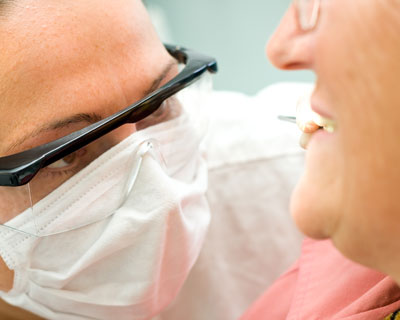Gum Disease Treatment
Prosthodontic Treatment
PERIODONTAL MAINTENANCE IN (XYZ)
Gum Disease Progression
Periodontal diseases are gum infections that erode the support for your natural teeth over time. There are a variety of diseases that require different treatments. In genetically vulnerable people, dental plaque is the leading cause of gum disease. The majority of periodontal diseases can be avoided by daily brushing and flossing.

What is the significance of dental hygiene?
Gum diseases (periodontal disease) cause more tooth loss in those over 35 than cavities. At some point in their lives, three out of every four adults will be affected. The greatest strategy to avoid cavities and periodontal disease is to brush and floss your teeth daily.
Bacterial plaque causes both periodontal disease and tooth decay. Plaque is a whitish coating that forms on the gum line of your teeth—plaque forms on your teeth regularly. You may remove these germs and help prevent periodontal disease by brushing and flossing your teeth thoroughly every day.
A variety of factors might hasten the progression of periodontal disorders. It is, however, primarily caused by bacteria present in dental plaque, a sticky, white film that accumulates on your teeth on a regular basis. Plaque hardens into a rough, porous substance known as calculus if it is not carefully removed by brushing and flossing daily (or tartar).
Other major elements affecting your gums' health include:
- Smoking
- Diabetes
- Stress
- Teeth clenching and grinding
- Medication
- Nutritional deficiencies
- Periodontal Disease
Plaque bacteria create toxins or poisons that irritate the gums, causing them to redden, swell, and bleed readily. The gums will separate from the teeth if the inflammation continues, resulting in pockets (spaces). The supporting gum tissue and bone that maintains teeth in place erode as periodontal disorders advance. This can lead to tooth loss if left untreated.
Gum Disease Prevention
Regular professional inspections and cleanings and effective daily brushing and flossing are the greatest ways to avoid gum disease. Unfortunately, even with the most meticulous at-home dental care, periodontal disease can still develop. Professional help is required once this disease has begun to advance.
Are you ready to brighten up your smile?
Make an appointment with our office right away!